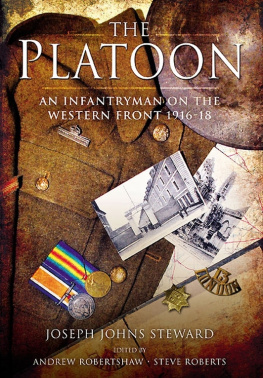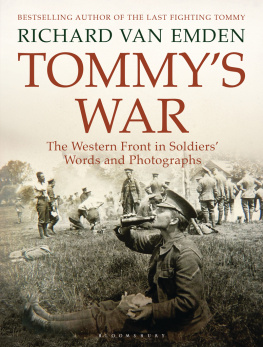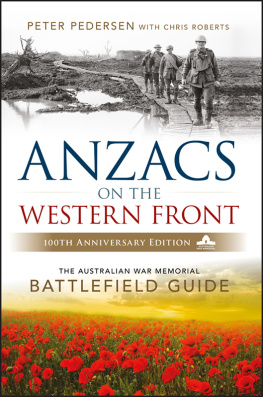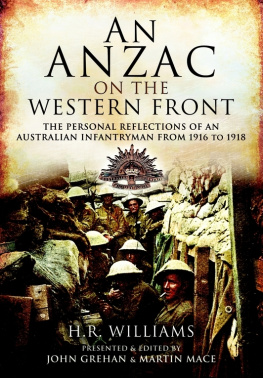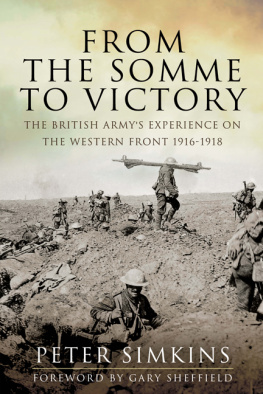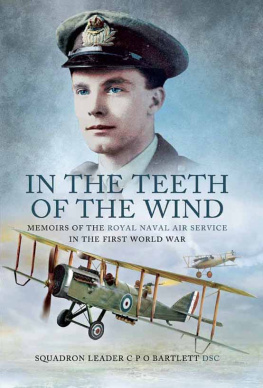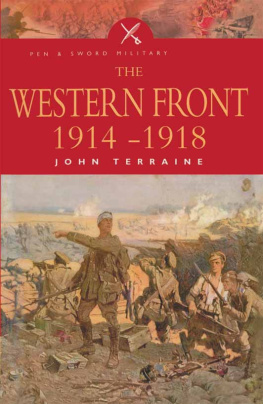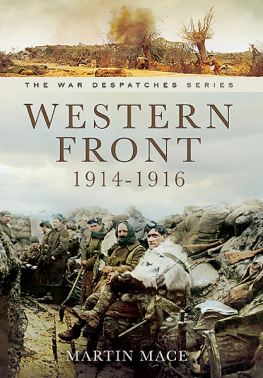Roberts Steve - The platoon an infantryman on the Western Front 1916-1918
Here you can read online Roberts Steve - The platoon an infantryman on the Western Front 1916-1918 full text of the book (entire story) in english for free. Download pdf and epub, get meaning, cover and reviews about this ebook. City: Barnsley;South Yorkshire, year: 2011;2013, publisher: Pen & Sword Military, genre: Detective and thriller. Description of the work, (preface) as well as reviews are available. Best literature library LitArk.com created for fans of good reading and offers a wide selection of genres:
Romance novel
Science fiction
Adventure
Detective
Science
History
Home and family
Prose
Art
Politics
Computer
Non-fiction
Religion
Business
Children
Humor
Choose a favorite category and find really read worthwhile books. Enjoy immersion in the world of imagination, feel the emotions of the characters or learn something new for yourself, make an fascinating discovery.
- Book:The platoon an infantryman on the Western Front 1916-1918
- Author:
- Publisher:Pen & Sword Military
- Genre:
- Year:2011;2013
- City:Barnsley;South Yorkshire
- Rating:4 / 5
- Favourites:Add to favourites
- Your mark:
- 80
- 1
- 2
- 3
- 4
- 5
The platoon an infantryman on the Western Front 1916-1918: summary, description and annotation
We offer to read an annotation, description, summary or preface (depends on what the author of the book "The platoon an infantryman on the Western Front 1916-1918" wrote himself). If you haven't found the necessary information about the book — write in the comments, we will try to find it.
Roberts Steve: author's other books
Who wrote The platoon an infantryman on the Western Front 1916-1918? Find out the surname, the name of the author of the book and a list of all author's works by series.
The platoon an infantryman on the Western Front 1916-1918 — read online for free the complete book (whole text) full work
Below is the text of the book, divided by pages. System saving the place of the last page read, allows you to conveniently read the book "The platoon an infantryman on the Western Front 1916-1918" online for free, without having to search again every time where you left off. Put a bookmark, and you can go to the page where you finished reading at any time.
Font size:
Interval:
Bookmark:
The editors of The Platoon would like to express their thanks to all those without whom the book would not have been possible. The first is, of course, the author Joseph Johns Steward, a man whom we never met but now know so much about. We can only speculate as to the circumstances in which he wrote this book, but his personal account of warfare on the Western Front is war from the point of view of the PBI, the Poor Bleeding Infantryman. It is a frank, factual and moving account that on his death was nearly thrown away as rubbish. The fact that it was not lost was due to the intervention of Joan Gray, who rescued the folder from the house in Croydon and passed it on to her daughter-in-law Jean Gray. Jean brought the typescript to the attention of Julian Waltho from Kent College, who suggested that Andy Robertshaw might like to look at it.
The rest, as they say, is history, but the publication would not have been possible without the support of our long-time publisher at Pen & Sword, Rupert Harding. He saw the potential of The Platoon and freely admits that his attitude to the value of the book improved with every version we sent him. This process of editing would have been rather delayed had it not been for the skills of Lesley Wood, who retyped the entire book. (The editors would still be typing now, had it been left to them.)
Thanks must also go to Colin Lattimore, Chairman of the Book Plate Society, for his assistance in dating the original book plate and subsequently enabling the editors to establish an approximate time frame for the writing of the manuscript, and to Bruce Harling, who, despite residing in Nice, illustrated the ease with which information from the United Kingdom census records could be accessed.
We are also grateful to Major Chris Carling, whose friendship, companionship, opinions and map reading expertise were much appreciated while we were attempting to follow the movements of The Platoon around northern France.
We would also like to thank the staff at the Imperial War Museum and the National Archives for all their assistance in tracing various individual and unit records and images. We must also thank Barbara Levy for allowing us to reproduce Twelve Months After by Siegfried Sassoon.
Finally we want to thank Joanna and Russell Gray, Jeans son and daughter, for allowing us to publish the book, and Jeans relative Laurence Hawkins for providing vital family history and some of the photographs we have used. Without the assistance of Jeans extended family, we would have no photographs of the author at all.
Andy Robertshaw and Steve Roberts
March 2011
It is at this point on 28 September 1918 that the narrative closes, with the final patrol of Knight and his section. Why the author elected to end the narrative here is not clear. It is known, however, that he was granted leave to the UK on 20 October 1918 and returned to the battalion on 3 November 1918.
According to the BWD the battalion was relieved on the night of 11 October 1918 and returned to Rumaucourt, becoming the divisional reserve. On 14 October 1918 the battalion moved to Marquion, where it entrained and moved to Arras, arriving after delays and a twenty-two hour journey. The battalion remained in Arras until 31 October 1918, when it moved back to the line in the area of Rhonelle. According to his service record, Joseph Steward rejoined the battalion on 3 November 1918 near Famars. Between 3 and 7 November 1918 the battalion was engaged in operations pursuing a retreating enemy moving through Saultain, Sebourquiaux and Angre.
During this period battalion casualties included Captain H.B. Perry, Second Lieutenant W. Osborn and nine other ranks killed and Second Lieutenant J.H.M. Wright and thirty other ranks wounded. Captain Perry and Second Lieutenant Osborn, according to CWGC records, were both buried in Valenciennes (St Roch) Communal Cemetery (Plots III, A, 9 and 15 respectively). During 8 November 1918 the battalion moved to and was billeted in Autreppe and on 9 November 1918 moved to Erquennes. The BWD describes the welcome given to the men by the locals as they marched through en route to Rieu de Bury, where they arrived on 10 November 1918.
On 11 November 1918 all available men of the battalion were engaged on road repairs under the direction of the Royal Engineers. The work continued despite hostilities ceasing at 11.00am and the usual military precautions were maintained.
The National Archives
War Diaries
13th (Kensington) Battalion, London Regiment WO95/2955
168 Infantry Brigade, July 1916 May 1917 WO95/2951
Service Records
Joseph Johns Steward WO363/S2335
Second Lieutenant J.F. Baker, killed in action 28 August 1918 WO374/3366
Captain R.G. Barnett, survived WO374/4150
Second Lieutenant H.N. Bundle, killed in action 20 September 1917 WO374/10759
Second Lieutenant F.B. Burd, killed in action 20 September 1917 WO374/10819
Second Lieutenant R.S. Dawes, killed in action 9 September 1916 WO374/18704
Major C.C. Dickens, killed in action 9 September 1916 WO374/19553
Major V.A. Flower, killed in action 15 August 1917 WO374/24780
Second Lieutenant J.C. Goadby, killed in action 28 August 1918 WO374/27654
Captain N.J. Inns, wounded 24 March 1918 WO374/36423
Lieutenant A.D. James MC, wounded 23 August 1918 WO374/36942
Second Lieutenant A. Lester, killed in action 8 May 1918 WO374/41782
Second Lieutenant W. Mortlock, discharged unfit as result of wounds WO374/49164
Second Lieutenant W.L. Posnett, killed in action 22 June 1917 WO374/54769
Second Lieutenant C.S. Ranson, killed in action 16 August 1917 WO374/56242
Second Lieutenant W. Sanders, killed in action 9 September 1916 WO374/60260
Second Lieutenant E.R. Seabury, killed in action 21 September 1917 WO374/61118
Acting Lieutenant Colonel R.E.F. Shaw, killed in action 23 August 1918 WO374/61725
Lieutenant W.E. Smith MC, killed in action 29 August 1918 WO374/63842
Second Lieutenant A. Swift, wounded 16 August 1917 WO374/66676
Imperial War Museum
Personal papers of P.D. Mundy (13 London) Box 80/43/1
General Histories
Anon., The Best 500 Cockney War Stories (London Evening News, 1921)
Anon., Cemeteries and Memorials in Belgium and France (Commonwealth War Graves Commission, 2004)
Bailey, O.F. and Hollier, H.M., The Kensingtons: 13th London Regiment (Regimental Old Comrades Association, London, 1936)
Becke, A.F., Order of Battle of Divisions, Part 1: The Regular British Divisions (Naval & Military Press Ltd, 2007)
, Order of Battle of Divisions, Part 2a: The Territorial Force Mounted Divisions and The 1st-Line Territorial Force Divisions 42 56 (Naval & Military Press Ltd, 2007)
, Order of Battle of Divisions, Part 3: New Army Divisions 9 26 (Naval & Military Press Ltd, 2007)
, Order of Battle of Divisions, Part 4: The Army Council, GHQs, Armies and Corps, 1914 18 (Naval & Military Press Ltd, 2007)
, Order of Battle of Divisions, Index (Naval & Military Press Ltd, 2007)
Beckett, I.F.W., The Great War (Harlow, Pearson Education, 2nd edn, 2007)
Brophy, J. and Partridge, E., The Long Trail, What the British Soldier Sang and Said in 1914 1918 (London, Andre Deutsch Ltd, 1965)
Corns, C. and Hughes-Wilson, J., Blindfold and Alone. British Military Executions in the Great War (Cassell & Co., 2001)
Dudley Ward, Major C.H., The Fifty-Sixth Division, 1st London Territorial Division 1914 1918 (Naval & Military Press, repr. edn, 1921)
Dymond, S., Researching British Military Medals, A Practical Guide (Crowood Press, n.d.)
Font size:
Interval:
Bookmark:
Similar books «The platoon an infantryman on the Western Front 1916-1918»
Look at similar books to The platoon an infantryman on the Western Front 1916-1918. We have selected literature similar in name and meaning in the hope of providing readers with more options to find new, interesting, not yet read works.
Discussion, reviews of the book The platoon an infantryman on the Western Front 1916-1918 and just readers' own opinions. Leave your comments, write what you think about the work, its meaning or the main characters. Specify what exactly you liked and what you didn't like, and why you think so.

